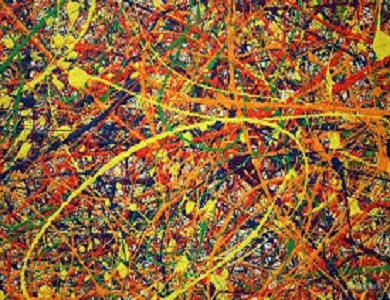Pagine
Condividi e segnala
Tag
- Althusser
- Antropologia
- Baumgarten
- Bourdieu
- Conceivability of Nothingness
- Conciliation
- corpo
- Derrida
- Dialectics
- Difference
- distinzione
- Europe
- Expression
- giudizio
- Grace
- Habitus
- Heidegger
- Hobbes
- Kant
- linguaggio
- Lyotard
- marxismo
- Medieval Aristotelianism
- Metaphysics
- Nature
- Negative
- Nichts
- nihil
- Nihilism
- nihil negativum
- nihil privativum
- Non-identical
- Nothing
- Nothingness
- onore
- politica
- postmoderno
- pratica
- riconoscimento
- Smith
- solitudine
- Sovranità
- Spinoza
- Thomas Aquinas
- Western Ontology
-
Articoli recenti
Link
Archivi categoria: Monografica
Il nulla e la nascita filosofica dell’Europa
Franca D’Agostini
(Università di Milano)
franca.dagostini@unimi.it

Abstract: In this contribution, I illustrate the reasons for which Fredegisus of Tours’ Epistula de nihilo et tenebris not only plays a prominent role in the history of philosophy, but also represents an invaluable tool to address contemporary philosophical inquiries into the status and the nature of ‘nothing’. Firstly, I analyse the logical and theoretical main arguments and characteristics of the Epistula; secondly, I illustrate the problem of the conceivability of nothingness in the light of contemporary discussions. In conclusion, I argue that a re-appraisal of the link between … Continua a leggere
Pubblicato in Monografica, NUMERO 2
Lascia un commento
Il negativo in questione. Una lettura di Adorno
Angelo Cicatello
(Università degli Studi di Palermo)
angelo.cicatello@unipa.it

Abstract: Adorno’s critique of Hegel goes beyond the terms of a facile opposition between a positive and reconciled formula of dialectics and a negative version that insists on unresolved conflict. It should not be simplistically placed under the sign of the reiteration of the negative. On the contrary, one could say that what is damaged by Adorno’s philosophical proposal is precisely the negative in a radical sense affecting the fate of dialectics tout court. This is because the deeper meaning of Adorno’s reference to the non-identical appears, … Continua a leggere
Pubblicato in Monografica, NUMERO 2
Lascia un commento
«In nihilum decidere». “Negatività” della creatura e nichilismo del peccato in Tommaso d’Aquino
Massimiliano Lenzi
(Sapienza, Università di Roma)
massimiliano.lenzi@uniroma1.it

Abstract: Thomas Aquinas was a major representative of a new ontological idea of nature, which was shaped in accordance with Christian theological notions in the context of medieval Aristotelianism. The crucial assumption of this idea was the concept of creation, which determined a radical rethinking of the autonomy that featured order and finality of the Aristotelian physis. Conceived of as a creature, that is, made from nothing in order to be an instrument of the Providence, nature was rooted in and contained by the divine power, upon which … Continua a leggere
Pubblicato in Monografica, NUMERO 2
Lascia un commento
Osservazioni sulla «tavola del nulla» di Kant
Claude Romano
(Université Paris-Sorbonne – Paris IV)
clromano@wanadoo.fr

Abstract: The «table of nothing» occupies a prominent role within the Critique of Pure Reason, since it is there that Kant brings into play the very meaning of transcendental philosophy. However, even though the Kantian conception of nothing marks the peculiarity of critical philosophy, the vocabulary that expresses it inexorably invokes the tradition in which Kant works. The text, in fact, unveils its deep bond to Baumgarten’s Metaphysica, to Wolff, as well as to Medieval Scholastics. Such a bond marks Kantian philosophy in a twofold way: it … Continua a leggere
Pubblicato in Monografica, NUMERO 2
Lascia un commento
Metafisiche del nulla: Schopenhauer, i suoi discepoli e l’inconsistenza del mondo
Fabio Ciracì
(Università del Salento)
fabio.ciraci@unisalento.it

Abstract: Schopenhauer’s metaphysics leads to a double nullity of the world: as a phenomenon, d.i. fleeting appearances, and as noumenon, because the Wille has to be redeemed by Nichtsein. Schopenhauer’s disciples (Hartmann, Bahnsen and Mäinlander) will give the Nichtsein an absolute ontological value, as a principle of redemption or metaphysical essence of reality.
Keywords: Nichtsein; Nichts; Hartmann; Mainländer; Bahnsen.
- Dal Kant verso il nichilismo idealistico
Esiste ormai una nutrita letteratura critica circa la natura teoretica che Schopenhauer attribuirebbe al … Continua a leggere
Pubblicato in Monografica, NUMERO 2
Lascia un commento
Volontà del nulla e volontà di verità. Una riflessione sul realismo di Nietzsche
Pietro Gori
(IFILNOVA, Universidade Nova de Lisboa)
pgori@fcsh.unl.pt

Abstract: The paper explores the few occurrences of the expression «will to nothingness» (Wille zum Nichts) in Nietzsche’s writings, and its relationship with the notions of ‘will to truth’ and ‘ascetic ideal’. Aim of this research is to show that these notions are mutually related, and that they outline the objectives of Nietzsche’s late thought. The investigation will focus in particular on the concept of “realism” that appears in Nietzsche’s late writings, and that can be interpreted as an existential attitude towards life that contrasts pessimistic … Continua a leggere
Pubblicato in Monografica, NUMERO 2
Lascia un commento
Equivocità del nulla in Karl Jaspers
Roberto Garaventa
(Università di Chieti-Pescara)
r.garaventa@unich.it

Abstract: This paper analyses the various meanings the word ‘nothing’ assumes in the work of Karl Jaspers: the nothing of nihilism, that is the absence of a horizon of meaning able to give substance to life and activity of man; the nothing of death, which arouses horror and resistance in the concrete individual; the objective nothing, which is unthinkable by man like the simple being; and the nothing of the authentic, transcendent being, which unfolds itself to man in borderline situations and offers him the freedom to exist in an … Continua a leggere
Pubblicato in Monografica, NUMERO 2
Lascia un commento
How to Account for Nothing(ness)
Marco Simionato
(Università Ca’ Foscari Venezia)
marco.simionato@hotmail.com

Abstract: Graham Priest, Alex Oliver with Timothy Smiley, and Alberto Voltolini have proposed respectively three different accounts of the phrase ‘nothing’, by arguing that there are sentences where it cannot be reduced to a negative quantifier phrase. In this paper I show that a more preferable account of nothing(ness) is given by the notion of an absolutely empty possible world (i.e. a world that represents no objects at all), rather than Priest or Oliver-Smiley’s accounts, since the use of the empty world allows us to avoid some disadvantages that … Continua a leggere
Pubblicato in Monografica, NUMERO 2
Lascia un commento
Agamben e la nozione aristotelica di «potenza»
Simone G. Seminara
(Universidade de São Paulo -USP)
simoneseminara@hotmail.it

Abstract: Aristotle’s philosophy plays a preeminent role in Giorgio Agamben’s thought. It might be said that the whole enquiry on the nexus between metaphysics and politics that Agamben develops in Homo Sacer is grounded on a critical analysis of the Aristotelian concept of dynamis (potentiality). While in Sovereign power and bare life the relation between constituent and constituted power is said to depend on the way by which one reads the existence and the autonomy of potentiality, in The use of bodies the concept of use is … Continua a leggere
Pubblicato in Monografica, NUMERO 2
Lascia un commento
Lukács, Heidegger and Reification
Tom Rockmore
(Peking University)
rockmore@duq.edu

Abstract: Sometimes very different positions overlap in unsuspected but significant ways. Lukács and Heidegger are important, but dissimilar twentieth century thinkers. Lukács is a Hegelian Marxist, and Heidegger is a post-Husserlian phenomenologist. They share a superficial similarity in their respective predilections for political dictatorship, Lukács for Stalin and Heidegger for Hitler. Yet there is a deeper link since, as Lucien Goldmann pointed out a half century ago, Heidegger’s phenomenological ontology is apparently intended as a response to Lukács’ Hegelian Marxist conception of reification (see Goldmann 1982). This paper will explore this … Continua a leggere
Pubblicato in Monografica, NUMERO 2
Lascia un commento
Sartre face à Hegel et Trotsky : les fins et les moyens du socialisme révolutionnaire. Idée du socialisme, «Sittlichkeit», institutions de la liberté et morale révolutionnaire à partir des «Cahiers pour une morale»
Emmanuel Barot
(Université Toulouse – Jean Jaurès/ex-Mirail)
ebarot@free.fr

Abstract: Sartre’s Being and Nothingness states that Hegel, in the Master-Slave dialectic, had an «ingenious insight» against solipsism, while asserting that each self-consciousness depends, in its very being, on other consciousnesses. However, against him, Sartre claims that the separation of the For-itself remains the insurmountable «scandal», and that collectivity can exist at most as a «de-totalized totality», but never as a Subject. The Cahiers pour une morale extends the analysis, in a true comparison with Hegelian Sittlichkeit, to the historical modalities of mutual recognition of liberties, which Sartre, … Continua a leggere
Pubblicato in Monografica, NUMERO 2
Lascia un commento

